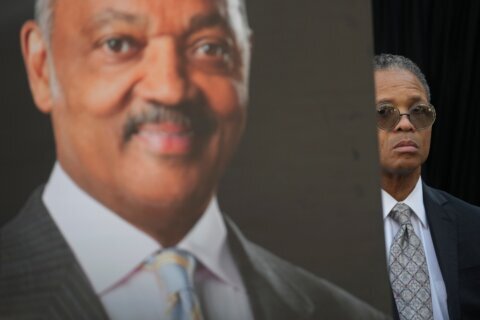For some, it might be uncomfortable talking to kids about the realities of American politics. For others, it could be a common occurrence in their household. Either way, a local expert in adolescents recommends having the conversation regardless.
Staying informed as a family and emphasizing the role that elections play in a democracy are two useful approaches to talking to kids about the upcoming election, according to Dr. Anisha Abraham, chief of the Division of Adolescent and Young Adult Medicine at Children’s National Hospital.
It’s important to have conversations about topics such as this fall’s election, Abraham said, and it’s essential to make sure family members respect diverse opinions.
Emphasizing the importance of elections can be helpful in approaching conversations about them, Abraham said. That could mean making sure young people feel like they understand the process or know how to get involved and volunteer if they’re interested.
“They’re a foundation of democracy, certainly the opportunity for us to really shape what’s going to happen in the future,” Abraham said.
While it’s important for everyone to respect different opinions, Abraham said it’s helpful to encourage young people to listen to what their peers and other adults are saying.
“They don’t have to agree, but certainly having that diversity of thought, I think, can strengthen all of us,” Abraham said. “Maybe also emphasizing that even if they have a different opinion, it doesn’t mean it’s right or wrong.”
Both children and adults should remain respectful when talking about politics or the election, she said, and “try not to make things (into) personal attacks.”
It may be useful to bond over collecting information and staying informed, Abraham said, by watching shows, reading books or attending events that might involve political facets.
Parents could also talk about social media with their kids, helping them understand how to tell whether something is true. Part of that includes reminding young people “that they’re going to maybe hear discussions, some of those may have negative or harmful content,” she said.
It’s never too early to talk about the election, she said, and in a clinical setting, “we’ve been having some interesting conversations about why it’s important for them, if they haven’t already, just to make sure that they take that opportunity to get involved and to certainly vote, what’s happening in their community that could be affecting themselves, their health and so on.”
Because the process could be challenging and sometimes overwhelming, Abraham said to make sure young adults feel that they’re supported.
Get breaking news and daily headlines delivered to your email inbox by signing up here.
© 2024 WTOP. All Rights Reserved. This website is not intended for users located within the European Economic Area.







